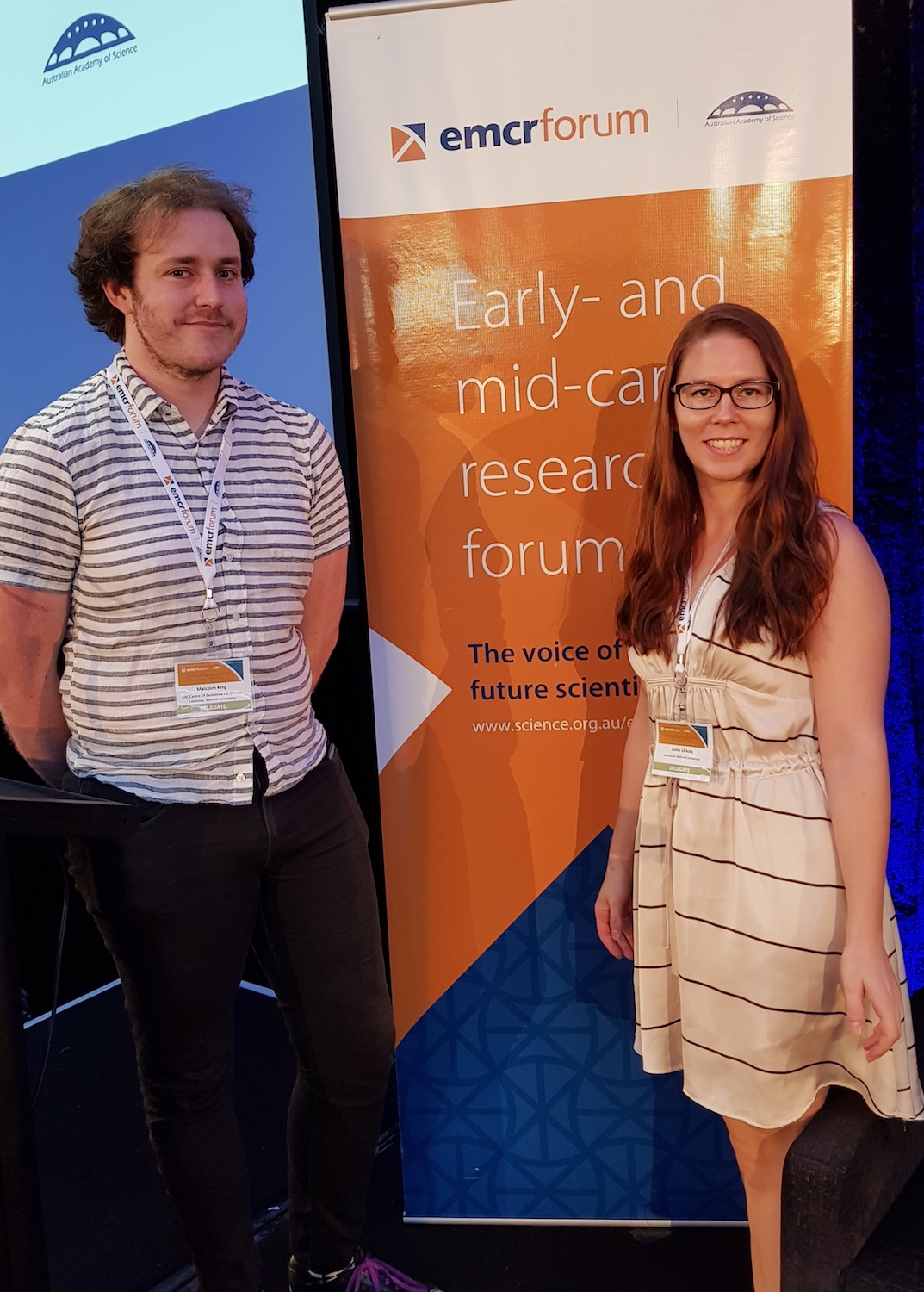by Malcom King
In late April, Anna Ukkola (ANU/UNSW) and I were able to attend the Australian Academy of Science’s 2018 EMCR forum Science Pathways 2018: Diversify your thinking as representatives of the ARC Centre of Excellence for Climate Extremes.
As suggested by the title, the EMCR forum had a focus on promoting increased diversity in Australian science; whether it be in the types of people that are able to become scientists and maintain a scientific career, or in the funding sources that are pursued to support science.
Throughout the two days, there were repeating themes and ideas that formed clear advice for utilising diversity to improve our science.
Improving the accessibility of scientific careers
Science has a reputation for being a field with a male-dominated culture where long hours and constant work are seen as positive attributes. However, this culture discourages large groups of people from following a career in the sciences, and prevents those already in the sciences from a range of viewpoints that can lead to unexpected and innovative solutions to the problems we face.

Instead, it was suggested that institutions should aim for hiring policies which aim for “cultural add” instead of “cultural fit” from their employees, and consider the health and wellbeing of staff as a competitive advantage. Similarly, as researchers we should remember that academia is not the only career path, and that frequently successful career paths look less like a straight line, but more of a squiggle that has dead ends, knock-backs and stints in areas such as public service and teaching. Finally, we should all keep in mind that metrics, regardless of what they are, are only a narrow focus of merit.
Increasing the interdisciplinarity of research
Another recurring theme during the forum was that communication and collaboration across disciplines can lead to improved outcomes in our science. One way this happens was mentioned in the opening address from Dr. Christine Williams (Queensland Chief Scientist), where she reminded us of the importance of serendipity in discovery and innovation. By looking widely across disciplines and collaborating with people outside our fields of expertise, the possibility of unexpected and interesting breakthroughs are vastly increased.
A keynote from Prof. Jennifer Martin outlined another way interdisciplinarity is important. She introduced us to the VUCA paradigm, where the environment around many important problems are volatile, uncertain, complex and ambiguous. In this paradigm, solutions to these problems require vision, understanding, clarity and agility, with close collaboration between scientists, economists, policy-makers and communicators needed to achieve such solutions.
Using a wide variety of funding sources
While the Centre of Excellence is funded through the Australian Research Council, the forum also reminded the attendees of alternative funding sources outside of the ARC or the NHMRC. The majority of funding sources mentioned during the forum were more appropriate to those in medical or agricultural fields, but there are available research grants from state bodies, non-profits, charitable trusts, industry R&D corporations, and industry itself, as well as the potential for crowd-funding research (although this was noted as not being for the faint of heart).
Most of the panels from the forum were taped and are available to watch here. The forum was a reminder that despite the efforts already made in making science an accessible and viable career for all, much remains to be improved.
